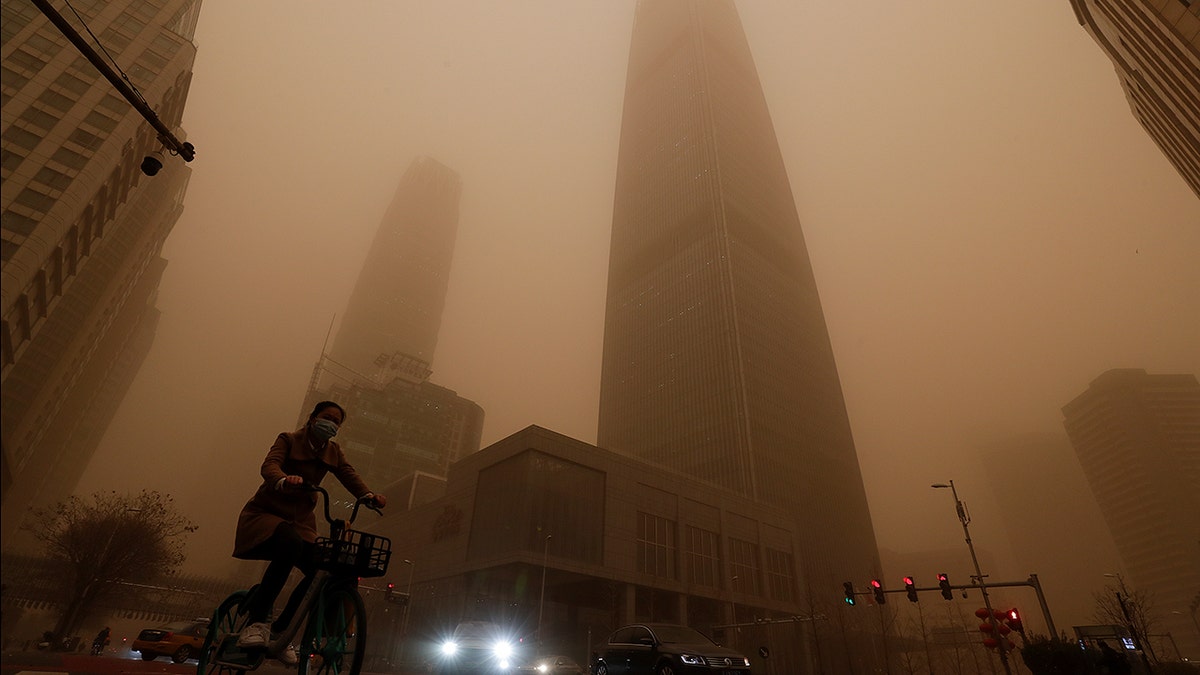Fox News Flash top headlines for March 14
Fox News Flash top headlines are here. Check out what's clicking on Foxnews.com.
China’s capital and a wide swath of the country's north were enveloped Monday in the worst sandstorm in a decade, leading to the cancelation of hundreds of flights.
Skyscrapers in the center of Beijing appeared to drop from sight amid the dust and sand. Traffic was snarled and more than 400 flights out of the capital's two main airports were canceled before noon.
Such storms used to occur regularly in the springtime as sand from western deserts blew eastwards, affecting areas as far as northern Japan.
MASSIVE COLORADO SNOWSTORM SLAMS DROUGHT-STRICKEN REGION, CANCELING 2,000 FLIGHTS

A cyclist and motorists move past office buildings amid a sandstorm during the morning rush hour in the central business district in Beijing, Monday, March 15, 2021. The sandstorm brought a tinted haze to Beijing's skies and sent air quality indices soaring on Monday. (AP Photo/Andy Wong)
Massive planting of trees and bushes in fragile areas has reduced the storms' intensity, but the expansion of cities and industries has put constant pressure on the environment throughout China.
The National Meteorological Center forecasted the sand and dust would affect 12 provinces and regions from Xinjiang in the far northwest to Heilongjiang in the northeast and the eastern coastal port city of Tianjin.
"This is the most intense sandstorm weather our country has seen in 10 years, as well as it covering the broadest area," the center said in a post on its website.
BLINKEN'S 'DIPLOMACY IS BACK' TWEET SEEN AS DIG AT TRUMP TEAM
It wasn't clear if the storm was related to a recent general decline in air quality despite efforts to end Beijing's choking smog.
CLICK HERE TO GET THE FOX NEWS APP
The ruling Communist Party has pledged to reduce carbon emissions per unit of economic output by 18% over the next five years. Environmentalists say China needs to do more to reduce dependency on coal that has made it the world's biggest emitter of climate changing gasses.








































